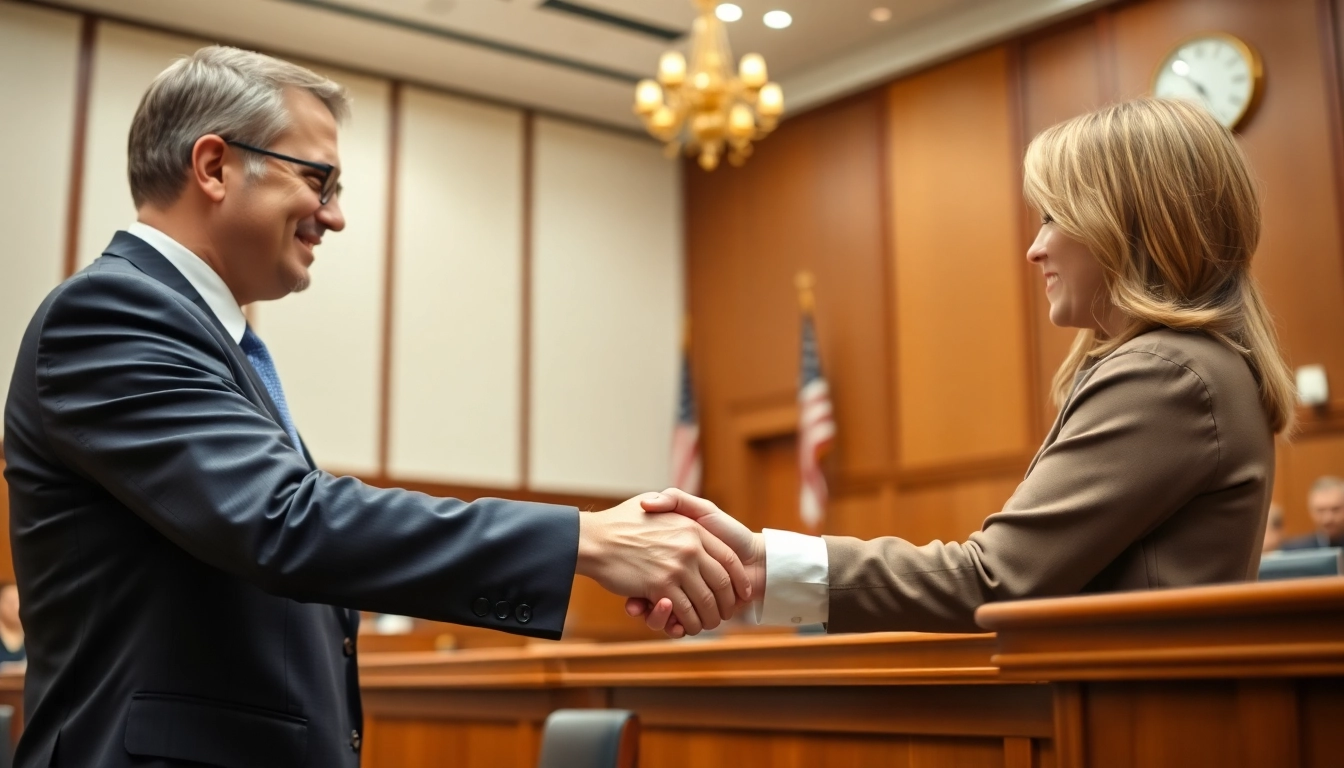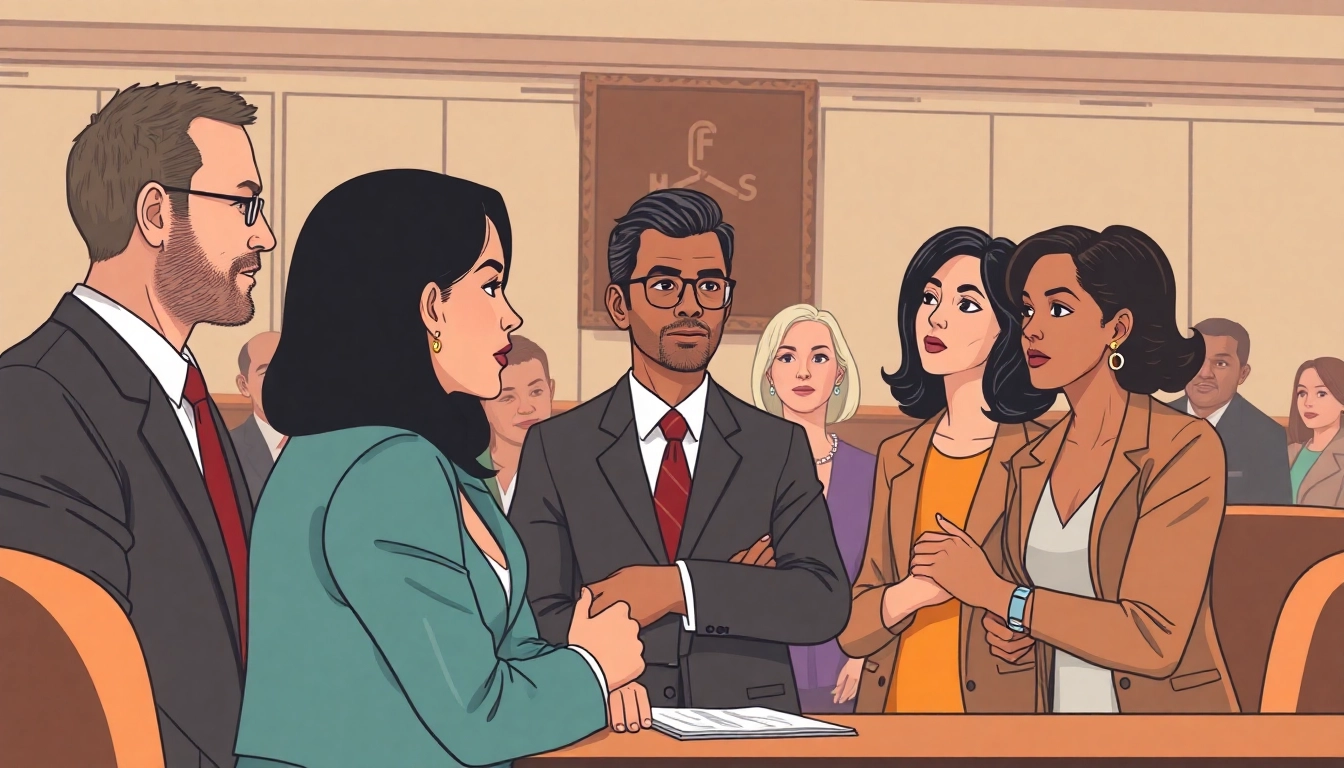Understanding Car Accidents in Florida
Car accidents are a common occurrence in the Sunshine State, where a combination of heavy traffic, diverse weather conditions, and a range of driver behaviors contribute to the frequency of these incidents. For anyone involved in a car accident, understanding the legal landscape is critical, especially when it comes to seeking compensation for injuries and damages. This is where Florida car accident attorneys can provide significant assistance.
Overview of Florida’s Traffic Laws
Florida traffic laws are designed to promote safe driving conditions for all road users. Understanding these laws is essential for both preventive measures and legal proceedings following an accident. The state operates under a “no-fault” insurance system, meaning that after a collision, each driver’s insurance covers their own injuries regardless of fault. This system aims to speed up the claims process and minimize litigation, but it can also complicate matters when serious injuries or damages occur.
In Florida, drivers are required to carry Personal Injury Protection (PIP) coverage, which provides limited coverage for medical expenses and lost wages. Additionally, drivers must have property damage liability insurance to cover damages to another person’s property. Yet, drivers who suffer serious injuries might still pursue compensation through a personal injury claim if they can prove that another party was at fault.
Common Causes of Car Accidents
Identifying the common causes of car accidents can help drivers take preventive measures. Some of the most prevalent factors contributing to car accidents in Florida include:
- Distracted Driving: Activities such as texting, using a smartphone, or adjusting the radio can divert a driver’s attention away from the road.
- Speeding: Exceeding the speed limit reduces a driver’s ability to respond to sudden changes in traffic conditions.
- Driving Under the Influence: Alcohol and drugs impair judgment and reaction times, leading to a higher likelihood of accidents.
- Weather Conditions: Florida’s unpredictable weather can lead to slippery roads and reduced visibility, increasing the risk of accidents.
- Reckless Driving: Aggressive behaviors such as tailgating and weaving in and out of traffic can lead to dangerous situations on the road.
Key Statistics on Florida Car Accidents
The statistics surrounding car accidents in Florida underscore the seriousness of the issue. According to the Florida Department of Highway Safety and Motor Vehicles (DHSMV), there were over 400,000 motor vehicle crashes reported in recent years, resulting in an alarming number of injuries and fatalities. More than 250,000 injuries occur annually, with the state consistently ranking among the top in the nation for car accident rates.
Additionally, the National Highway Traffic Safety Administration (NHTSA) reports that Florida sees a higher number of pedestrian and cyclist injuries due to its geographic layout and population density, which places additional emphasis on the need for integrated safety measures and vigilant driving behavior. Understanding these figures can provide context for the legal process following a car accident.
The Role of Florida Car Accident Attorneys
Hiring a qualified attorney following a car accident is crucial for protecting your rights and maximizing your potential compensation. Some may feel overwhelmed by the aftermath of an accident, but legal guidance can provide clarity and support.
What to Expect from Your Attorney
A Florida car accident attorney offers various services, including:
- Initial Consultation: Most attorneys provide a free initial consultation to discuss the specifics of your case.
- Case Evaluation: Your attorney will assess the merits of your case, including reviewing medical records, accident reports, and insurance policies.
- Legal Representation: Attorneys represent you in negotiations with insurance companies and in court if necessary, advocating for your best interests.
How Attorneys Can Help with Your Case
Florida car accident attorneys play a pivotal role in building your case. They can help:
- Document Evidence: Gather and preserve critical evidence such as photographs, witness statements, and police reports.
- Negotiate Settlements: Attorneys negotiate with insurance companies to reach fair settlements on behalf of their clients.
- Prepare for Trial: If negotiations fail, attorneys prepare your case for trial, including collecting expert testimonies and building a persuasive legal argument.
Choosing the Right Attorney for Your Needs
Choosing the right attorney can be daunting, but certain factors can simplify the decision-making process. Look for attorneys with:
- Experience in Car Accident Cases: Focus on professionals who specialize in personal injury law, particularly car accidents.
- Positive Client Reviews: Research online reviews and testimonials to gauge previous client satisfaction.
- Transparent Fees: Discuss fees upfront to understand how the attorney will be compensated for their services.
Steps to Take After a Car Accident
Knowing the right steps to take after an accident can greatly impact the outcome of your case. Here’s a comprehensive guide to follow.
Immediate Actions to Ensure Safety
Immediately after an accident, your safety and the safety of others should be your top priority. Actions to take include:
- Check for Injuries: Assess yourself and others for any injuries. If anyone is injured, call 911 immediately.
- Move to Safety: If possible, move vehicles to the side of the road to prevent further collisions.
- Use Hazard Lights: Turn on hazard lights to alert other drivers of the situation.
Gathering Evidence for Your Claim
Collecting evidence is essential for building a solid case. Ensure you obtain:
- Incident Reports: Request a copy of the police report detailing the accident.
- Witness Information: Gather contact details from any witnesses who observed the accident.
- Photographic Evidence: Take photos of the accident scene, vehicle damages, and any visible injuries.
Reporting the Accident to Authorities
In Florida, you must report any car accident involving injury, death, or property damage exceeding $500 to law enforcement. Following the report, ensure that:
- All Information is Accurate: Review the report for any inaccuracies and request corrections if necessary.
Navigating the Legal Process
Understanding the legal process after a car accident can help alleviate confusion. Each step is essential for achieving a successful outcome.
Understanding Personal Injury Claims
Personal injury claims allow injured parties to seek compensation for losses resulting from someone else’s negligence. Pursuing these claims involves proving the following elements:
- Duty of Care: Establish that the other driver had a legal obligation to drive safely.
- Breach of Duty: Show that the driver failed to meet this duty, such as through reckless or negligent behavior.
- Causation: Connect the breach of duty directly to your injuries or damages.
- Damages: Document and prove the extent of your injuries and financial losses.
The Timeline of a Car Accident Case
The timeline for resolving a car accident case can vary greatly. Generally, the process follows these stages:
- Initial Consultation: Usually within a few weeks to a month after the accident.
- Investigation: This stage can take several weeks as attorneys gather evidence.
- Negotiation: Settlement negotiations typically occur within a few months of filing a claim.
- Trial (if necessary): If a settlement is not reached, the case may proceed to trial, which can prolong the overall process to several months or more.
Frequently Asked Questions About Legal Representation
Many individuals have questions about hiring a lawyer after a car accident. Here are some common inquiries:
- How Much Will It Cost? Most personal injury attorneys work on a contingency fee basis, meaning they only get paid if you win your case.
- How Long Do I Have to File a Claim? In Florida, you typically have four years from the accident date to file a personal injury claim, but it is best to act swiftly to preserve evidence.
- What if I Was Partially at Fault? Florida follows a comparative negligence rule, allowing you to recover damages even if you are partially at fault, although your compensation will be reduced by your percentage of fault.
Maximizing Your Compensation
After experiencing a car accident, recovering your losses is crucial. To increase the likelihood of receiving full compensation, consider the following strategies.
Factors Influencing Your Settlement
Several factors can significantly influence the amount you may receive in a settlement, including:
- Severity of Injuries: The more severe your injuries, the higher the potential compensation.
- Medical Expenses: Your medical treatment costs, future medical expenses, and ongoing rehabilitation will affect your claim.
- Lost Income: Document any missed work or loss of earning capacity due to your injuries.
- Pain and Suffering: Compensation may also include non-economic damages related to your pain, suffering, and emotional distress.
Tips for Working with Your Attorney
Collaborating effectively with your attorney can enhance your case. Keep in mind:
- Communicate Openly: Share all relevant information and updates regarding your health and case progress.
- Be Honest: Provide your attorney with accurate information regarding the events leading up to the accident and your injuries.
- Stay Informed: Regularly check in with your attorney to stay updated on the progress of your case.
Common Mistakes to Avoid in Car Accident Cases
Avoiding common pitfalls can make a significant difference in your case. Here are some mistakes to steer clear of:
- Admitting Fault: Avoid discussing fault at the scene of the accident, as it may be used against you later.
- Delaying Legal Action: Waiting too long to hire an attorney can jeopardize your case.
- Settling Too Quickly: Don’t rush into a settlement agreement with an insurance company without consulting your attorney first.



